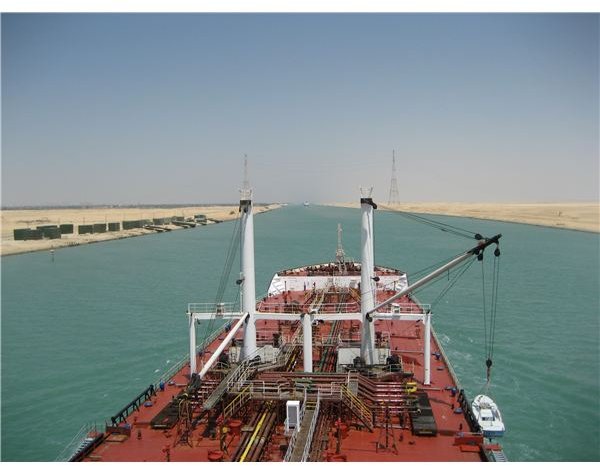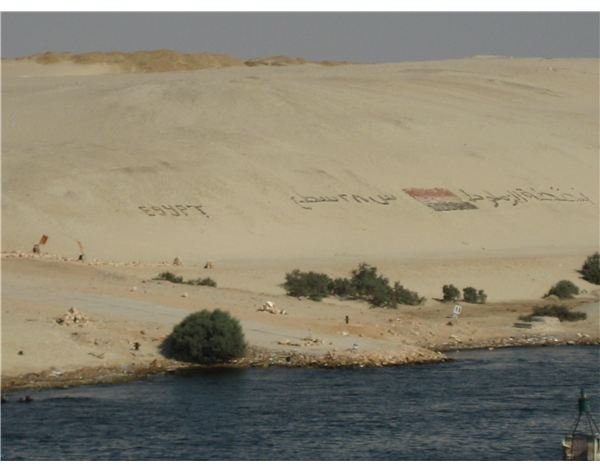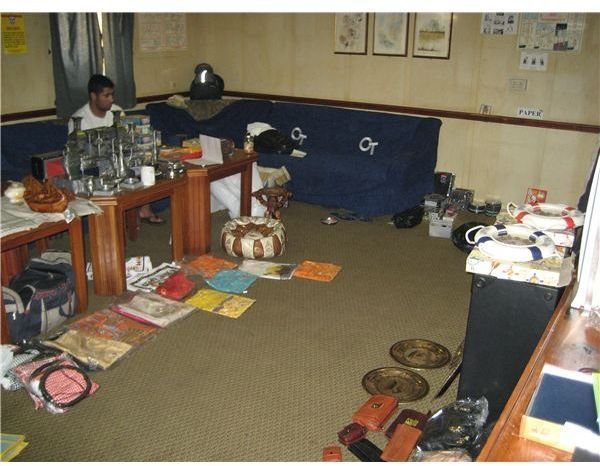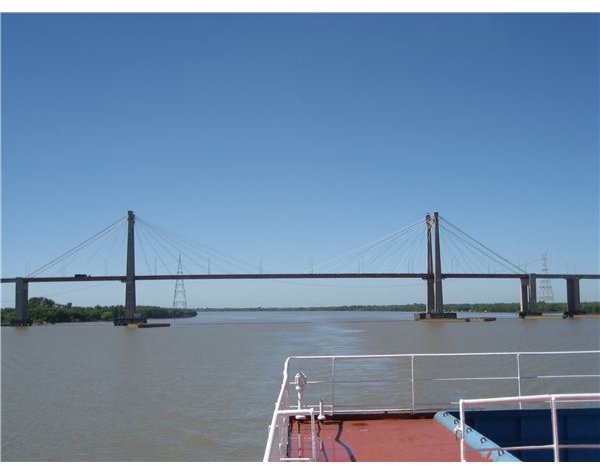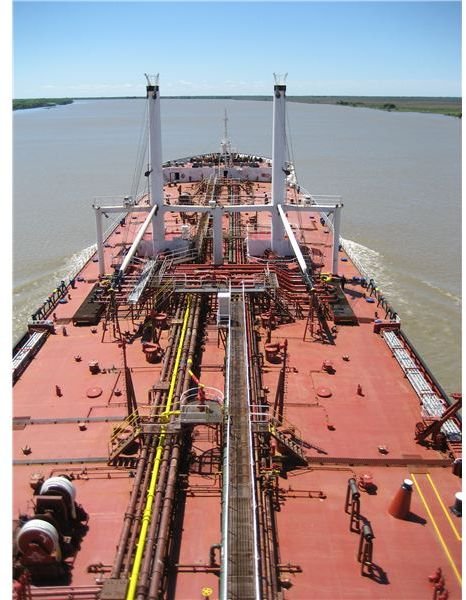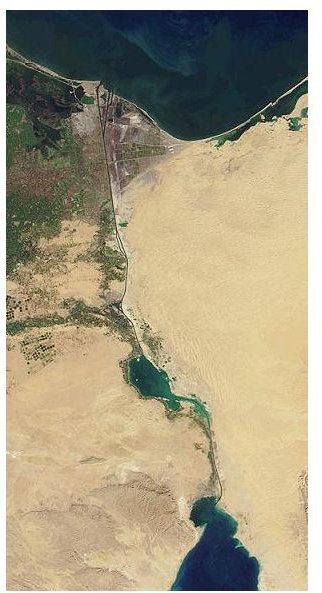Where is the suez canal located and what is its significance to shipping trade?
Where is the Suez Canal located?
We learnt about the Panama Canal which is important for all types of ships. Another important man-made marvel, which holds a key position in the history is The “Suez Canal”. It is located on the north of Africa, south-east of Europe. It connects the Mediterranean sea and the Red sea. Port Said is located on the Mediterranean sea & Port Suez is located on the Red sea. The picture shows the view of Suez canal from the East. At the bottom we can witness the Red sea with Port Suez at the mouth of the canal. The canal is 192 Kms long extends till Port Said at the other end of the canal, leading into the Mediterranean sea.
History & Importance of the Canal
The construction of the canal dates back to 18th century. In middle on 18th century, French Engineer, Ferdinand de Lesseps, formed a company “Suez canal company” to carry out the construction of the canal. Due to various political, technical, financial & geographic reasons, the construction of canal was stopped plenty times and after re-started for construction, it costed double the estimated cost. The canal was open for shipping from 1869 and closed in between as “war between Egypt & Israel” as reason. Now the canal is open through out the year for shipping industry and declared as neutral zone, and managed by U.A.E.
The western world to get raw materials, started trading with the East. This was earlier done by adopting a route by making a round trip around Africa. The ships had a big technical problem of storing enormous quantity of fuel oil for making such a long voyage. The time involved was plenty times more than when we adopt a route through the Suez Canal. Also the cost incurred for the fuel was also high. But after the construction of Suez canal, It overtook all difficulties with the shipping industry. Ships made frequent transit which saved time, money and man power too.
Flourishing Oil Trade
The Gulf of aden & Persian Gulf countries are considered to be the major exporters of oil. Oil, thus being the major source of energy throughout the world, it was highly essential to transport oil from these Gulf region to every part of the world. So it was highly essential to construct a canal for easy transportation. Thus on this special interest, the canal construction was started and thus it made faster and easy transportation of merchant ships. But it said in the history that the Egyptians were forced to work for the construction of the canal.The death toll accounts to nearly 30,000 people.
Capacity & Operation of the canal
The capacity of Suez Canal is that it can entertain upto 1,50,000 tonnes of displacement. It permits ships upto 16 m draft to transit through. The maximum size of the vessel which can make a safe transit through the canal is called Suezmax. The limiting factor for the ship’s size is the draft of the ship alone, and the lenght & beam are made irrelevant because of the absence of the locks and lock chambers. The air draft of the ship is restricted because of the Suez Canal bridge. The Supertankers, in order to avoid a round-trip via Cape of Good Hope,(Africa), discharge a part of their cargo, to the terminals, or “tranship” to smaller vessels, which enlightens the chances of the Supertankers to pass through the Suez canal. After crossing the canal, these ships again load the cargo and then start their sea voyage. As this becomes a main constrain, The Suez Canal authorities, have planned to dredge the canal up to 22 metres, which enable vessels bigger than Suezmax to be engaged in the convoy.
Dimensions of the SuezMax vessel:
deadweight: 150000 tonnes.
width(beam): 46 metres.
air draft: 68 metres
Environmental Impact - Lessepsian Migration
Wondering how can construction of a canal, creates impact on the environment? Yes. It has created a great impact on the marine environment. After the construction of the canal, the Red Sea was connected to The Mediterranean sea. This madde the species from Red sea to invade the Mediterranean sea causing the imbalance of the eco-system. The water flow is generally from the Red sea to the Mediterranean sea due to small difference in water level. This made the migration of species from Red sea to Mediterranean sea only. This migration is called as Lessepsian migration because, it was “Ferdinand de Lesseps”, who engineered the construction of the canal.
The Convoy…!
picture source: https://looklex.com/e.o/suez_can.htm
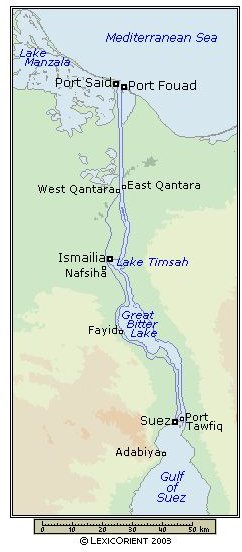
The transit through the Canal, is called a “Convoy”. At any given time, only single pass can be made through the canal. But, there are 3 places where the ships are usually anchored to adjust the convoy plans. On a typical day, 3 convoys transit the canal. Two south bound, & one north bound. First, the southbound convoy enters the canal, after reaching the river area, the convoy gets anchored. The northbound convoy passes through the anchored area and then the southbound convoy transits the canal. The ships transits at a reduced speed to avoid the erosion of the canal sides.
Thus we have visualized the importance of the Suez canal, for shipping industry.
Pictures at Suez canal;
These are my personal images taken during the “convoy” at Suez canal:
